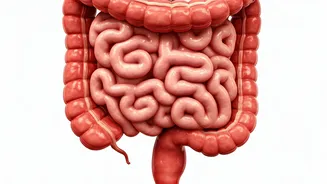Caffeine's Stimulating Effect
Caffeine, a common stimulant found in coffee, tea, and energy drinks, has a well-known effect on the digestive system. It can speed up the process of bowel
movements, which is why many individuals turn to it for relief from constipation or to promote regularity. This stimulation happens because caffeine encourages the muscles in the intestines to contract more forcefully. These contractions push waste through the digestive tract faster. Initially, this might seem helpful; however, regularly using caffeine in this manner can lead to a dependence on it. Your body may start to rely on caffeine to trigger bowel movements, and without it, you could face difficulties.
Gut Health Risks
A gastroenterologist's warning highlights the detrimental effects of relying on caffeine for bowel movements. The expert pointed out that frequently using caffeine can lead to an unhealthy reliance. Regular stimulation from caffeine can disrupt the natural processes of the gut. The gastrointestinal tract becomes accustomed to this artificial stimulation. Over time, the body may become less capable of initiating bowel movements on its own. This can result in chronic constipation when caffeine is not present. Furthermore, excessive caffeine can lead to other gastrointestinal issues. It can cause or worsen symptoms such as acid reflux, heartburn, and overall discomfort within the digestive system. Therefore, it is important to understand the broader implications beyond the initial relief.
Alternatives to Caffeine
Since caffeine dependence can be problematic, it's wise to consider alternative methods for managing bowel health. One of the primary recommendations for improving gut function involves increasing dietary fiber intake. Fiber helps by adding bulk to the stool and promoting regular bowel movements. Foods rich in fiber include fruits, vegetables, whole grains, and legumes. Staying well-hydrated is also essential. Drinking adequate water can soften the stool, making it easier to pass. Another key approach is to build a consistent bathroom routine. Establishing a regular time for bowel movements can help train your body. It can also support the natural rhythm of your digestive system. Regular physical activity has been shown to improve digestion. Exercise boosts metabolism and stimulates intestinal activity.
When to Seek Advice
While lifestyle adjustments are often sufficient for managing bowel health, there are times when medical advice is necessary. If you experience persistent constipation, significant changes in bowel habits, or any related discomfort or pain, you should consult a healthcare provider. A doctor can evaluate the situation and identify any underlying medical conditions. In certain instances, there could be a need for specific diagnostic tests or treatment plans. Experiencing blood in the stool or unexplained weight loss also warrants prompt medical attention. A healthcare professional can provide guidance on appropriate lifestyle modifications and dietary changes. They may also suggest medications or other interventions to support healthy bowel function.




















